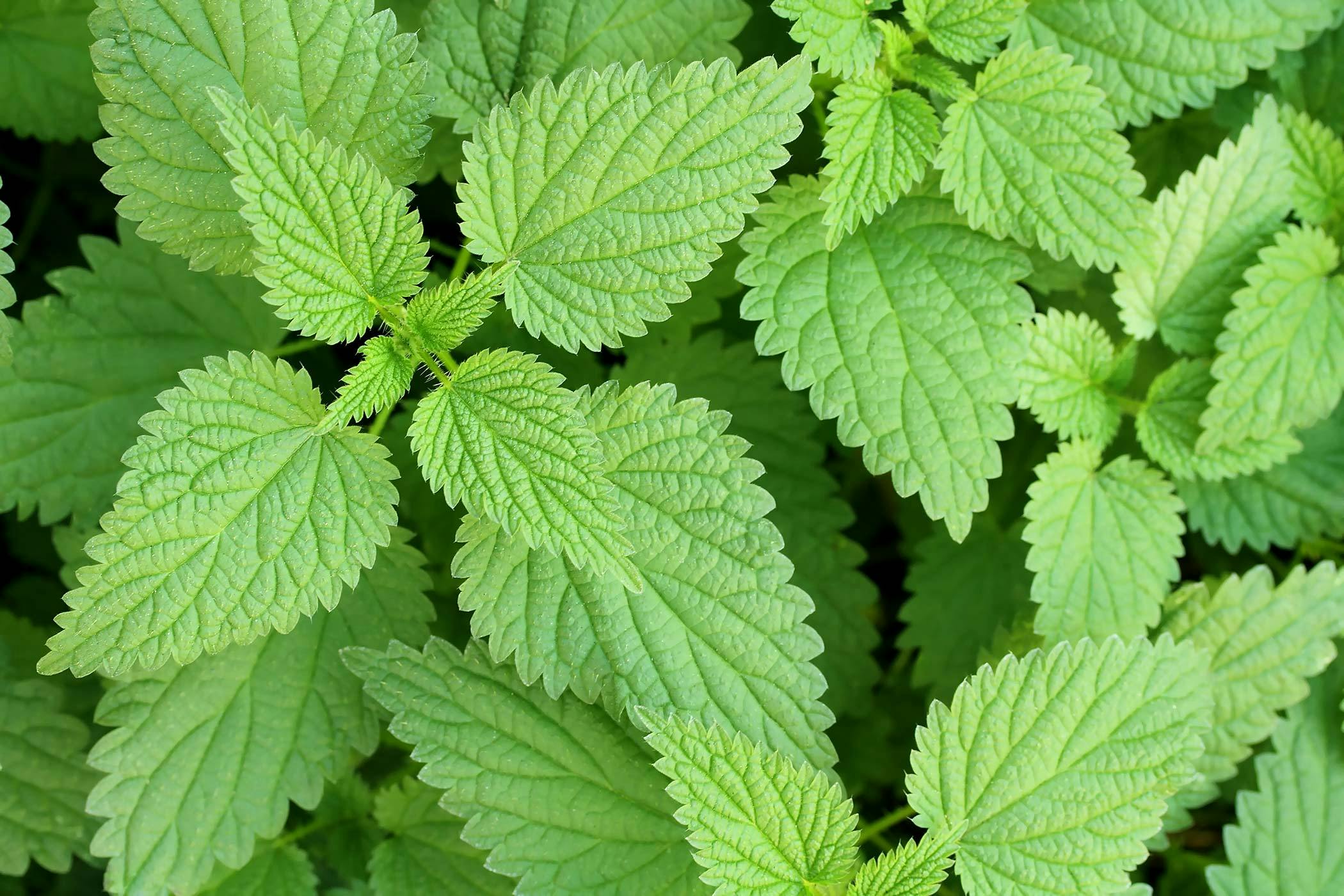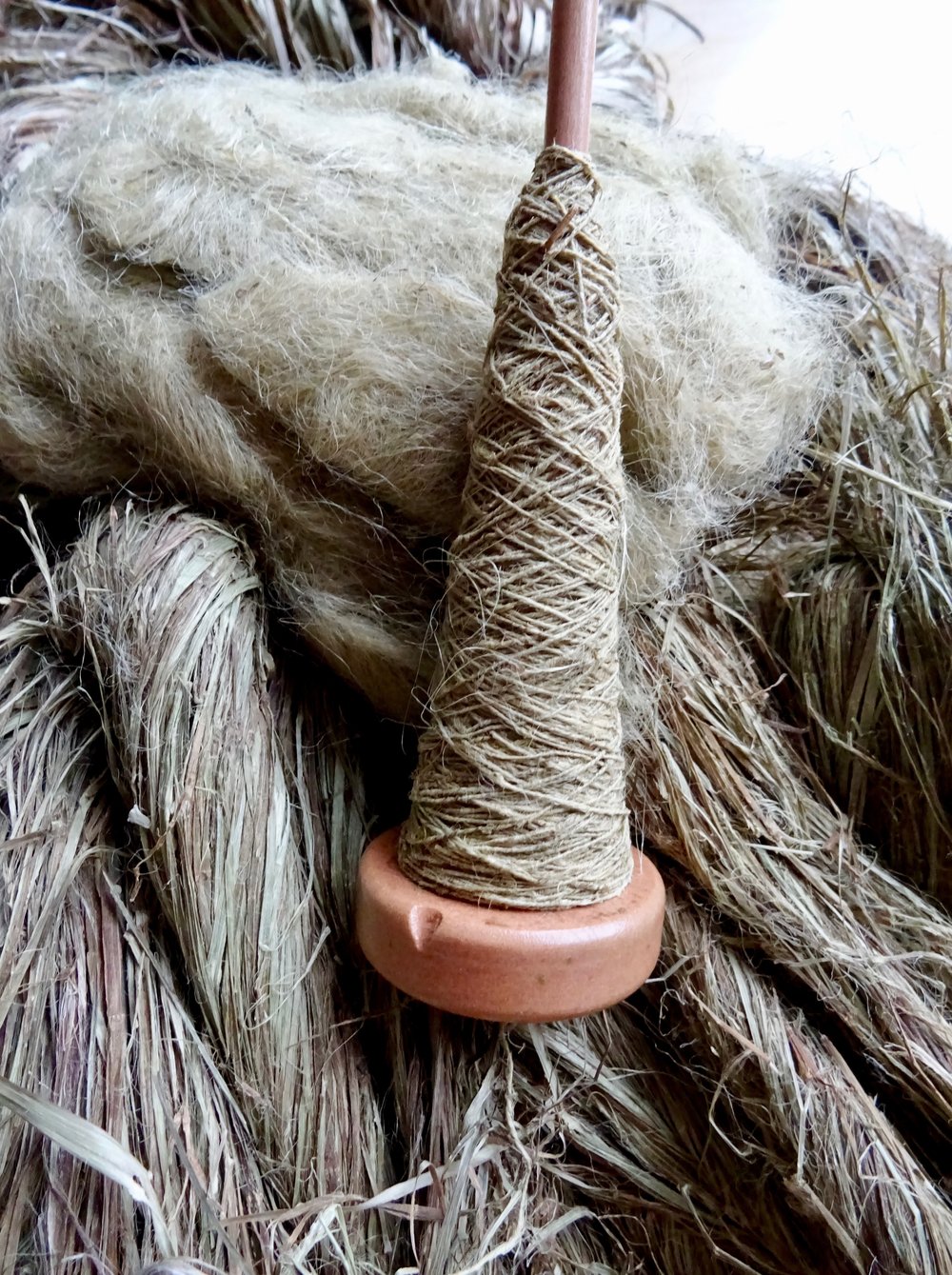
How many remember the burning itch of nettles from childhood? I admit that I had a particular talent for finding nettles ... with my hands. I spent a lot of my younger years with stinging fingers.
But the lowly nettle, it turns out, has many legitimate uses that our forefathers knew about.
In a recent bout of research on Native Americans, I discovered that the Ojibwe women wore skirts made of woven nettle fabric. I immediately started to itch, of course. And then I dug a little deeper into the subject.
Nettles, like flax, hemp, and other plants, produce a long, fine, and very spinnable fiber. Who knew?! It's a process to get the fiber out of the stalks, but it's not difficult, only time-consuming.
The stalks are cut at the base when they are mature and still green. Leather gloves are a really good idea for this chore! The leaves are stripped off and the stalks are bundled into a manageable size.
Bundles of stalks are then submerged into a trough of water, or if you're lucky enough, a pond or stream. The stalks are weighted to keep them below the surface, and left in the water for about a week. This starts the retting - or rotting - process.
The bundles are then opened and spread out on the ground to fully dry. Once dry, the stalks are split open and long fibers are peeled away from the woody pith. This is a very tedious step. People serious about making any amount of useable fiber will have some tools to help in the process, like a break, hackle, and scrutching swords, but we won't get that deep in the weeds here.
With some sort of carder or steel comb, the extracted fibers are smoothed and straightened for spinning into thread.
Once spun, the thread is usually boiled with a bit of soap to remove any of the sticky residues that remain. It can then be knitted, woven, or bound into cordage.
Not interested in all that work but curious about nettle yarns? Commercially available yarns containing nettle fibers are now available in the better yarn stores across the county. Pick up a skein and get in touch with some early American history.
More in this series:
Exploring Nettles for Dinner
Exploring Nettles for Color
Exploring Nettles for Health
More in this series:
Exploring Nettles for Dinner
Exploring Nettles for Color
Exploring Nettles for Health
Pegg Thomas is an author and editor, but also a fiber artist of some *mumble* years. She raises sheep and spins their wool to create one-of-a-kind shawls and other useful items. While she mostly uses a modern-day production spinning wheel, she occasionally spins on a 200-year-old Great Wheel, a true piece of American history.


In years past, I would have been growing some nettles for my own fiber, but am much older and a little bit wiser... Nice to read that I can buy ready made nettle yarn!
ReplyDeleteI think I'm going to try and process some this year, just for kicks and giggles and to say that I did it.
DeleteThanks for sharing Pegg! I had no idea about this positive use of nettles.
ReplyDeleteConnie
cps1950(at)gmail(dot)com
I have two more blog posts scheduled in the next couple of months dealing with other interesting uses for nettles. Stay tuned!
DeleteVery interesting.
ReplyDelete